The child abuse scandal of the British children sent abroad
The child abuse scandal of the British children sent abroaom the section
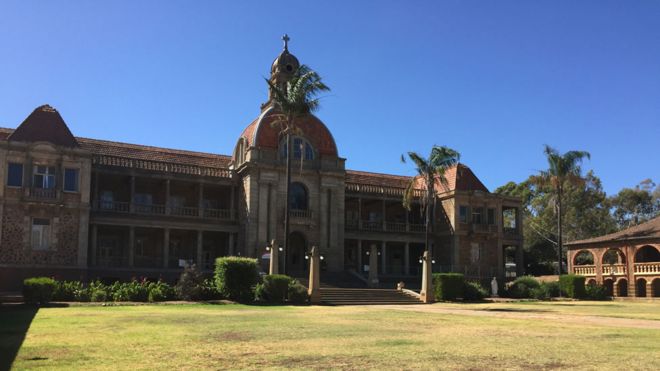
For several decades, the UK sent children across the world to new lives in institutions where many were abused and used as forced labour. It's a scandal that is still having repercussions now.
Imagine the 1950s, in the years before air travel became commonplace or the internet dominated our lives. Imagine being a child of those times, barely aware of life even in the next town. An orphan perhaps, living in an British children's home.
Now imagine being told that shortly you would board a ship for somewhere called Australia, to begin a new life in a sunlit wonderland. For good. No choice.
It happened to thousands of British children in the decades immediately following World War Two, and they had little understanding of how it would shape their lives.
The astonishing scandal of the British child migrants will be the first subject for which the Independent Inquiry into Child Sexual Abuse will hold full public hearings. It's first because the migrants are now nearing the end of their lives.
Clifford Walsh stands in the port of Fremantle near Perth in Western Australia.
He is now 72. Fremantle is where, in 1954, aged nine, he stepped off the ship from London, looking for the sheep he'd been told outnumbered people in Australia 100 to one.
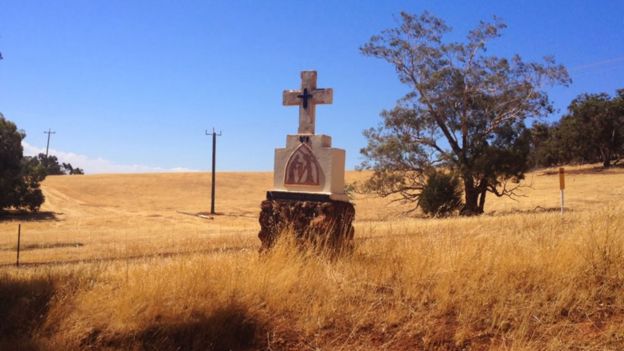 CLIFFORD WALSH
CLIFFORD WALSHHe ended up at a place called Bindoon.
The Catholic institution known at one point as Bindoon Boys Town is now notorious. Based around an imposing stone mansion in the Australian countryside, 49 miles north of Perth, are buildings Walsh and his fellow child migrants were forced to build, barefoot, starting work the day after they arrived.
The Christian Brothers ruled the place with the aim of upholding order and a moral code. Within two days of arriving he says he received his first punishment at the hands of one of the brothers.
"He punched us, he kicked us, smashed us in the face, back-handed us and everything, and he then sat us on his knee to tell us that he doesn't like to hurt children, but we had been bad boys.
"I was sobbing uncontrollably for hours."
His story is deeply distressing. He tells it with a particularly Australian directness. He is furious.
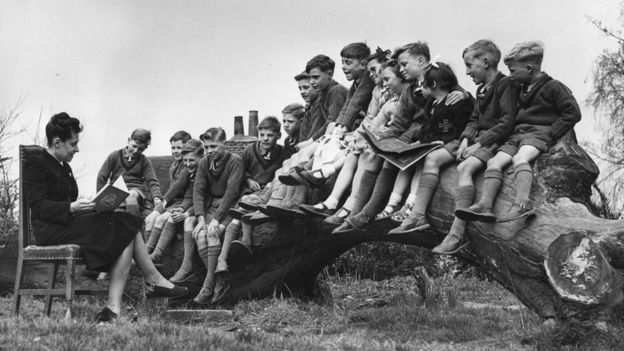 GETTY IMAGES
GETTY IMAGESHe describes one brother luring him into his room with the promise he could have some sweet molasses - normally fed, not to the boys, but the cows. The man sexually abused him.
He claims another brother raped him, and and a third beat him mercilessly after falsely accusing him of having sex with another boy.
"We had no parents, we had no relatives, there was nowhere we could go, these brothers - these paedophiles - must have thought they were in hog heaven."
He has accused the brothers at the Australian Royal Commission into Institutional Responses to Child Sexual Abuse, the first time he has fully disclosed his experiences.
At the time he says: "I was too terrified to report the abuse. I knew no other life.
"I've lived 60 odd years with this hate, I can't have a normal sexual relationship because I don't like to hold people," says Walsh. "My own wife, I couldn't hug."
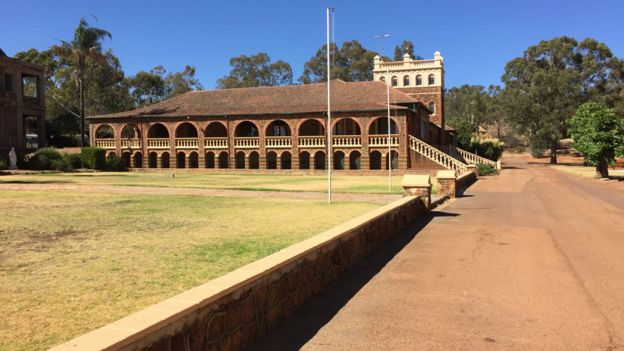 CLIFFORD WALSH
CLIFFORD WALSHHe was troubled by all the memories.
"I couldn't show any affection. Stuff like that only reminded me of what the brothers would do all the time."
Britain is perhaps the only country in the world to have exported vast numbers of its children. An estimated 150,000 children were sent over a 350-year period to Australia, New Zealand, Canada, and what was then Southern Rhodesia, now Zimbabwe.
Australia was the main destination in the final wave between 1945 and 1974.
There were twin purposes - to ease the population of orphanages in the UK and to boost the population of the colonies.
The children were recruited by religious institutions from both the Anglican and Catholic churches, or well-meaning charities including Barnardo's and the Fairbridge Society. Their motivation was to give "lost" children a new life, and it would be wrong to say that every one of Britain's exported children suffered.
But for too many, the dream became a nightmare. Hundreds of migrant children have given accounts of poor education, hard labour, physical beatings and sexual abuse.
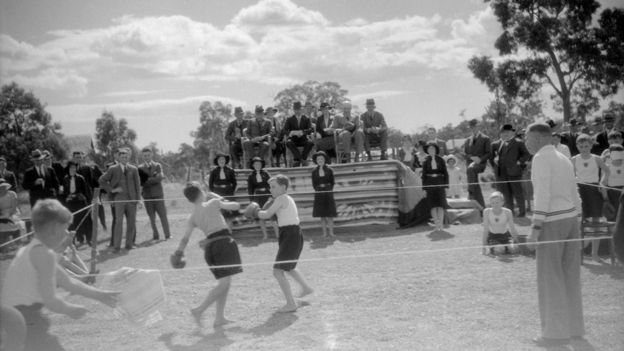 GETTY IMAGES
GETTY IMAGESAttempts were made to recreate a happy home life. At the Fairbridge Farm School in Molong, four hours outside Sydney, children lived in cottages, each with a "house mother".
Fairbridge was not a religious order, like the Christian Brothers, and some of its former children have praised the start it gave them.
But not Derek Moriarty. He was at Molong for eight years, one of hundreds of children to have endured poor food, inadequate education and physical labour. His life has been deeply affected by his Fairbridge upbringing.
He suffered at the hands of the then-principal of the school, Frederick Woods, a man he says kept 10 canes, and to the horror of the children, a hockey stick - which he used to beat the boys.
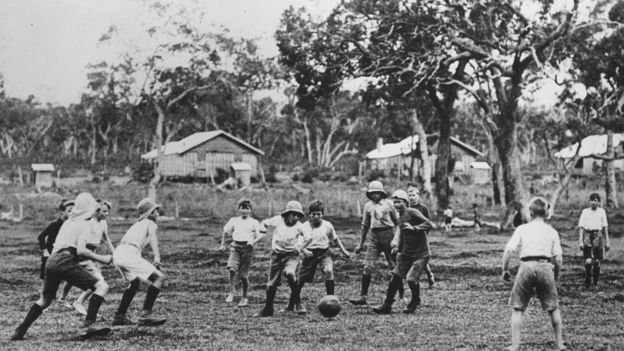 GETTY IMAGES
GETTY IMAGESPerhaps inevitably, Moriarty alleges sexual abuse - by a member of staff who took his clothes off and touched him.
"I was nine or 10," he says, "and I didn't understand it." He eventually ran away from Molong, attempted suicide at the age of 18 and has always suffered from depression, not helped by the years it took to discover the details of his family back in the UK.
In 2009 the Australian government apologised for the cruelty shown to the child migrants. Britain also made an apology in 2010.
The pressure for answers and reparations had been growing. Questions might never have been asked, had it not been for two seekers of the truth.
In the early 1980s a Nottingham social worker, Margaret Humphreys, came across Australian former migrants who had suddenly started to realise they might have living relatives in the UK.
Many had been told, as children, their parents were dead. It wasn't true. "It was about identity," she says, "being stripped of it and being robbed of it."
Her life's work has been about reuniting "lost children" with their lost relatives. Having reinstated their sense of identity, she went on to build a lifelong bond with many former migrants, and they began to disclose the physical and sexual abuse they had suffered.
"As you go along, you're learning more and more about the degrees and the awfulness of the abuse. That's been incremental because people can really only talk about it over a longer period of time when there is trust. There's a lot of trauma involved here."
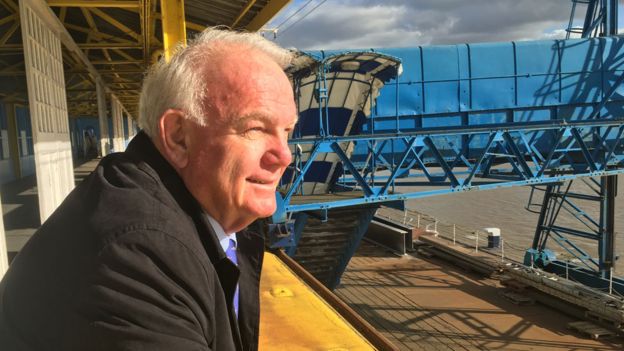
Further revelations about the Fairbridge homes were uncovered by one of their own.
David Hill was shipped out from Britain with his brothers to the Fairbridge farm at Molong in 1959. He was one of the lucky ones. His mother followed him later, providing him with a stable future.
He became a highly successful public figure in Australia. He was chairman and managing director of the Australian Broadcasting Corporation, and is a keen historian. Hill brought together the Fairbridge boys and girls to tell him their stories. Like those from the west of Australia - they were dominated by beatings and abuse.
Derek Moriarty was among those who unburdened themselves for the first time to Hill, as part of the research for his 2007 book The Forgotten Children and a 2009 ABC television documentary.
"I felt a weight lifted off my shoulders when I told him," Moriarty says. "But my abuse paled into insignificance compared to some others."
David Hill's work triggered claim after claim from men and women about their experiences as children.
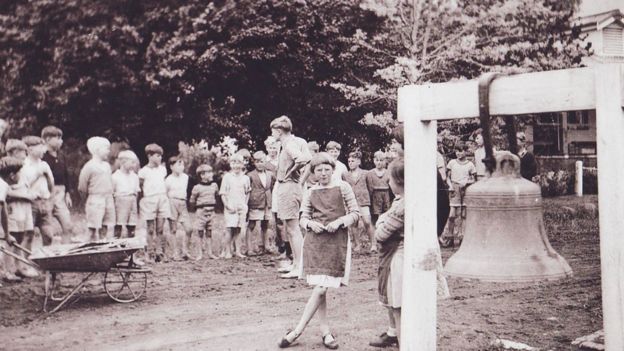 OTHER
OTHERThey wrote and told him of a litany of sexual abuse. There was no sexual education at the school and, failing to understand what was happening, they were left traumatised.
Hill makes the astonishing claim that 60% of the children at Fairbridge Molong allege they were sexually abused, based on more than 100 interviews.
The Australian law firm Slater and Gordon successfully claimed compensation on behalf of 215 former Fairbridge children, of whom 129 said they had been sexually abused.
For the Christian Brothers the figures are even higher. The Australian Royal Commission on child abuse recently revealed 853 people had accused members of the order.
Hill is one of the expert witnesses who will give evidence to the UK Independent Inquiry into Child Sexual Abuse (IICSA). The inquiry has been bitterly criticised since its creation - and some have questioned its huge scope.
Is there any point in it considering the history of child migration, dating back so far?
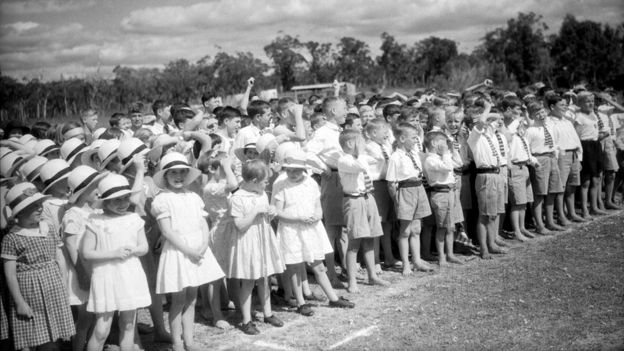 GETTY IMAGES
GETTY IMAGESThe Australian Royal commission is examining child migration closely. In 1998 the UK's Health Select Committee also held hearings, in which the Child Migrants Trust described the Christian Brothers institutions as "almost the full realisation of a paedophile's dream".
But the committee did not get to the bottom of it, concluding: "The Christian Brothers were very insistent that the abuses were not known to those who controlled these institutions. We cannot accept this."
Sources close to the current public inquiry have told the BBC it will produce new and startling revelations about the scale of sexual abuse abroad, and attempts by British and Australian institutions to cover it up.
This will include an examination of the claims of some child migrants that they were sent abroad weeks after reporting sexual abuse at their children's home in the UK. The allegation is that they were hand-picked. Either to get them out of the way, or because they were of interest to paedophiles.
Three former Fairbridge boys have claimed that the then-Australian Governor General, Lord Slim, sexually molested them during rides in his chauffeur-driven Rolls Royce while visiting the home. It is understood these allegations could be considered by the inquiry.
The inquiry could also definitively answer a crucial historical question. Did the British government know it was sending children to be mistreated in a foreign country?
Margaret Humphreys is adamant: "We want to know what happened, we want to know who did it, and we want to know who covered it up for so long."
In fact, government files reveal that there was a time when the migration programme could have been stopped. It came in 1956 when three officials went to Australia to inspect 26 institutions which took child migrants.
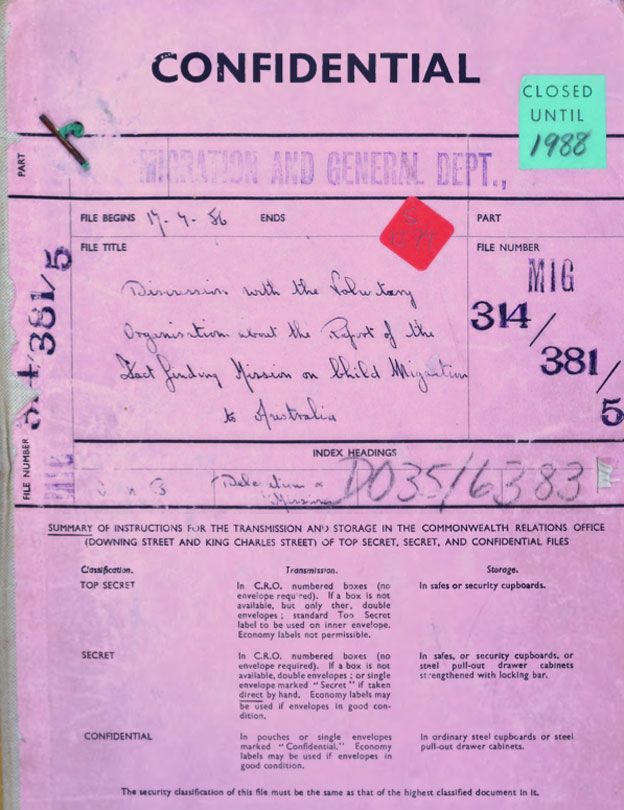 NATIONAL ARCHIVES
NATIONAL ARCHIVESThere was enough warning of this "fact-finding mission" to allow a Fairbridge official to warn the manager of the Molong farm: "It would be advisable to see (the children) wore their socks and shoes." Even in a land where it was easy to encounter poisonous wildlife, that wasn't standard practice at many of the institutions.
The resulting report, delivered back to the British government, was fairly critical. It identified a general lack of expertise in child care and worried that children were living in institutions in remote rural areas, whereas the trend in Britain was towards fostering them into urban families.
However the report had a second "secret" section, never published, which went a little further.
This named names - including those of five institutions which were not up to standard. When the UK's Home Office saw the report, it wanted five more added to create what became an infamous blacklist - places which should not receive more children because of poor standards of care. Fairbridge Molong and Bindoon were both on the list.
- St Joseph's orphanage, Sydney
- Dhurringile Rural Training Farm, Victoria


 Votes : 0
Votes : 0









